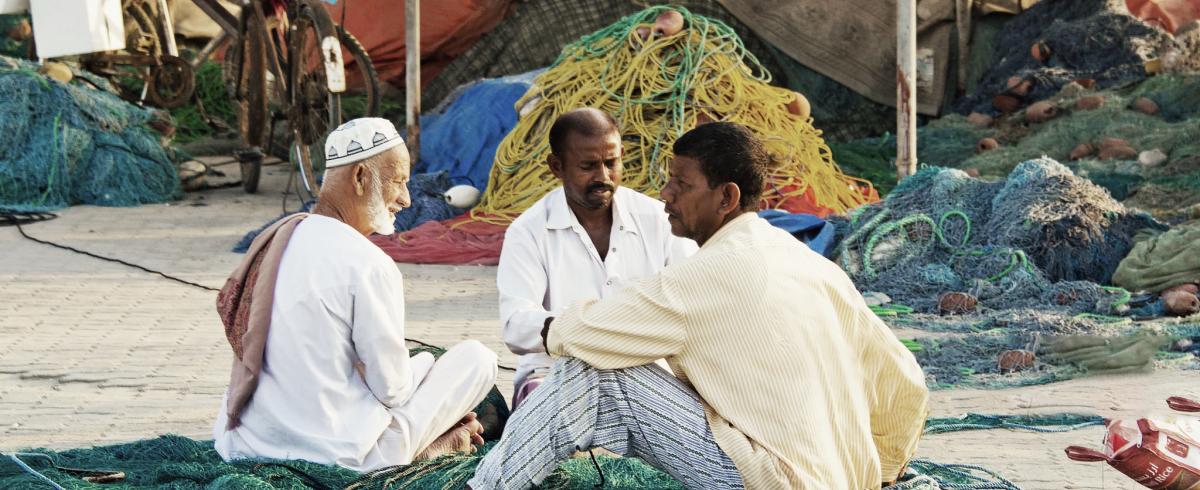
Categories to Explore
Welcome to the Resource Library. Here you will find a range of resources that you can use to support your small-scale fishery and community. Use the buttons above to browse resources by category or use the filters on the right to sort resources.
Protocolo de monitoreo para reservas marinas
El presente protocolo se realizó con la inspiración de diferentes protocolos que se emplean en los tres ecosistemas prioritarios donde COBI trabaja. El objetivo principal es fortalecer las capacidades de los socios comunitarios, personal de áreas naturales protegidas, investigadores, estudiantes, y voluntarios en general, los cuales podrán conocer y aprender las diferentes técnicas de monitoreo, especies que se censan en estos ecosistemas prioritarios y así lograr una colecta de datos estandarizada a nivel nacional.
Guía práctica para la elaboración de proyectos comunitarios
El diseño de la guía práctica para la elaboración de proyectos tiene como objetivo el fortalecimiento de capacidades de las comunidades pesqueras. Esta herramienta propicia la autogestión de proyectos de conservación y pesca sostenible. A su vez se busca fomentar la corresponsabilidad en el manejo y gestión de recursos económicos en las comunidades para que éstos sean dirigidos a la resiliencia y la sostenibilidad, así como a la transferencia del conocimiento.
Guide to improved dried shrimp production
This guide is for dried-shrimp producers, buyers and those involved in extension services. The aim is to describe good processing, handling and hygiene practices that will help producers maximize the value and income from dried shrimp, meet required national standards and access new and high-value markets.
Post-harvest losses in small-scale fisheries: Case studies in five sub-Saharan African countries
This regional programme began in October 2006 and lasted 18 months. It aimed to build on past initiatives and develop tools for practical loss assessment in artisanal fisheries. The programme provided capacity building for fishery officers in qualitative and quantitative fish loss assessments methods, planned support, and supervised the implementation of loss assessment studies in five sub-Saharan African countries (Ghana, Kenya, Mali, United Republic of Tanzania and Uganda).
Women's economic empowerment in fisheries - In the blue economy of the Pacific Rim
This report provides a baseline analysis of women’s economic empowerment in the fisheries sector in the blue economy of the Indian Ocean rim region. The report focuses on the 22 Member States of the Indian Ocean Rim Association (IORA) and includes both marine and inland fisheries and aquaculture sectors.
Role and Place of Women in Fisheries Value Chain: Case of Dagaa Fishery in Lake Victoria
The video explores the role and place of women along fisheries value chain with a focus on the case of the Dagaa Fishery in the Lake Victoria.
Women in Small-scale Fisheries in Tanzania: Challenges and Opportunities
This video case study explores the challenges that women involved in fisheries activities face on a day to day basis in Tanzania: What successes have they achieved? how can their participation in fisheries be strategically improved? It also explains the strategies in place at local and national levels to counter and improve the situation.
Seabird identification cards for fishing vessels operating in the Indian Ocean
These identification cards are intended to improve the reporting of interactions between vessels targeting species under the management mandate of the Indian Ocean Tuna Commission (IOTC) and seabirds. The major seabird species groups that occur within the IOTC Area of Competence are described and details of the species most commonly interacting with the pelagic fisheries for tuna and tuna-like species are provided in a clear, easily navigable, pictoral identification guide. Key diagnostic features are illustrated alongside distribution maps indicating species occurrence.
Marine turtle identification cards for Indian Ocean fisheries
This is an identification guide for marine turtles that may interact with the pelagic fisheries for tuna and tuna-like species in the Indian Ocean. The characteristics of the six species found in the Indian Ocean (flatback, loggerhead, hawksbill, green, olive ridley and leatherback turtles) are described with colour photographs, schematic diagrams of key diagnostic features and distribution maps.
Shark and ray identification in the Indian Ocean
These identification cards are produced by the Indian Ocean Tuna Commission (IOTC), in collaboration with the Secretariat of the Pacific Community (SPC), to help improve catch data and statistics on sharks and rays that interact with tuna fisheries in the Indian Ocean.
